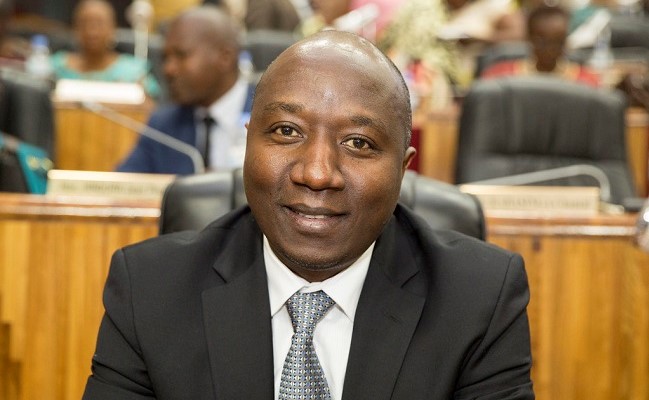The Rwandan government on Monday, May 6, 2019 inaugurated new water treatment plants to ease access to clean water for residents of the country.

Rwandan Prime Minister, Edouard Ngirente, inaugurated the new Nzove I water treatment plant with capacity to produce 40,000 cubic metres of water per day and newly upgraded Nzove II water treatment plant in Kigali’s Nyarugenge district.
The Nzove II water treatment plant was upgraded from production capacity of 25,000 cubic meters per day to 40,000 cubic meters per day.
With the new plants, the capacity of daily clean water supply to Kigali increase to 160,500 cubic meters, exceeding the daily demand which stands at about 143,668 cubic meters, said Ngirente at an inauguration ceremony.
All city dwellers should be able to have access to clean water, he said.
This inauguration is another milestone in the vision of the Rwandan government to scale up clean water to all Rwandans, Ngirente said at an inauguration ceremony.
The water project is vital for residents of the city, who have been experiencing clean water shortages in some areas, he said.
“The government will continue to increase its investments in construction, extension and rehabilitation of more than 1,900 km of water supply systems in Kigali and other cities in order to achieve its goal,” he added.
The two water treatment plants were funded by the Rwandan government at a cost of $40.2 million, according to the Rwandan ministry of infrastructure.
Rwanda has embarked on strategies aimed to achieve universal access to clean, safe water and sanitation across the country by 2024.
Meanwhile, the Rwandan central bank on Monday said that it had lowered its policy lending rate to five per cent, down from 5.5 per cent, to sustain growing domestic demand and increase credit to the private sector.
After assessment, the Monetary Policy Committee of the National Bank of Rwanda observed domestic demand continued to improve in the first quarter of 2019.
It was supported by growing credit to the private sector, central bank governor John Rwangombwa told a news conference in the Rwandan capital, Kigali.
Outstanding credit to the private sector and new authorised loans increased at a higher pace, growing at 16.2 per cent and 24.9 per cent in the first quarter of 2019, from 7.3 per cent and 7.4 per cent of the same quarter of 2018.
The trend is expected to continue throughout 2019, supported by a more accommodative policy stance, Rwangombwa said.
The headline inflation rate is projected to rise to three per cent by the end of the year, from an average of 1.4 per cent in 2018, the governor said.
Rwangombwa noted that inflation expectations are well anchored within the target range, and economic growth prospects are improving.
